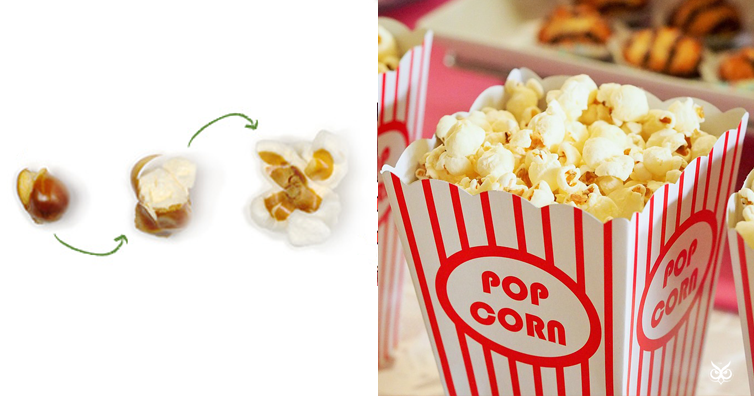Its association with theaters may be a 20th century thing, but popcorn has been enjoyed by people for centuries. Archaeologists found 4,000 years old popcorn kernels in New Mexican caves while Aztec Indians were using popcorn to make their garlands. But humans have always wondered what was it, that made a popcorn pop.
To answer that question, they developed some quite interesting legends. For example, early native Americans believed a spirit was living inside the popcorn kernel. When people heated its “home”, the spirit would burst into the air as a puff of steam.
Well, even though we can 100% sure that no spirit is living inside the kernel of popcorn, the question remains: What really makes a popcorn pop? Let’s find out. (the article continues after the ad)
To get to that, we need to first clarify that out of the 4 common corn types (flint, sweet, dent and popcorn) only popcorn pops. And that is because popcorn is different from the others since its hull has the right thickness that allows it to burst open.
What makes popcorn to eventually pop, is the water it contains.
Every popcorn kernel has a small amount of water stored inside it. In fact, kernels with more than 14% moisture will pop while those with less moisture won’t. As we heat up the kernel, the water expands and at around 212 °F (100 °C), it turns into steam which opens the kernel. The kernel will continue to heat and when it reaches 347 °F (175 °C) it pops and instantly freeze, thus getting its recognizable odd shape we all know and love.
If you like what you read, then you will definitely love this one: How Do Silencers Work And Why They Are Nowhere Near ‘Silent’
Main Article Photo: www.popcorn.org, dbreen / Pixabay
Photoshop: I’m A Useless Info Junkie
Sources: What Makes Popcorn Pop? | What Makes Popcorn Pop?



